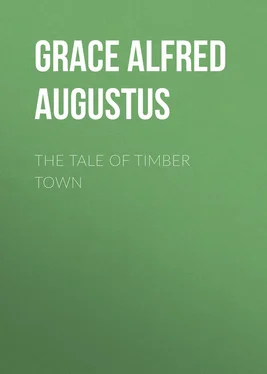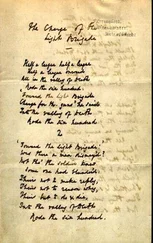Alfred Grace - The Tale of Timber Town
Здесь есть возможность читать онлайн «Alfred Grace - The Tale of Timber Town» — ознакомительный отрывок электронной книги совершенно бесплатно, а после прочтения отрывка купить полную версию. В некоторых случаях можно слушать аудио, скачать через торрент в формате fb2 и присутствует краткое содержание. Жанр: foreign_antique, foreign_prose, на английском языке. Описание произведения, (предисловие) а так же отзывы посетителей доступны на портале библиотеки ЛибКат.
- Название:The Tale of Timber Town
- Автор:
- Жанр:
- Год:неизвестен
- ISBN:нет данных
- Рейтинг книги:5 / 5. Голосов: 1
-
Избранное:Добавить в избранное
- Отзывы:
-
Ваша оценка:
- 100
- 1
- 2
- 3
- 4
- 5
The Tale of Timber Town: краткое содержание, описание и аннотация
Предлагаем к чтению аннотацию, описание, краткое содержание или предисловие (зависит от того, что написал сам автор книги «The Tale of Timber Town»). Если вы не нашли необходимую информацию о книге — напишите в комментариях, мы постараемся отыскать её.
The Tale of Timber Town — читать онлайн ознакомительный отрывок
Ниже представлен текст книги, разбитый по страницам. Система сохранения места последней прочитанной страницы, позволяет с удобством читать онлайн бесплатно книгу «The Tale of Timber Town», без необходимости каждый раз заново искать на чём Вы остановились. Поставьте закладку, и сможете в любой момент перейти на страницу, на которой закончили чтение.
Интервал:
Закладка:
“What’s the price?” she asked.
“Prices to suit all buyers,” said Tresco. “They go from ten pounds upwards. This is the one I recommend – it carries a guarantee for five years – jewelled throughout, in good, strong case – duplex escapement – compensation balance. Price £25.” He held up a gold chronometer in a case which was flat and square, with rounded corners, and engraved elaborately – a watch which would catch the eye and induce comment.
The jeweller had gauged the taste of his fair customer.
“Oh! the duck.”
“The identical article, the ideal lady’s watch,” said Tresco, unctuously.
“And now the chain,” said Rachel.
Benjamin took a dozen lady’s watch-guards from a blue velvet pad, and handed them to the girl.
The gold clerk of the Kangaroo Bank stood by, and watched, as Rachel held the dainty chains, one by one, across her bust.
“Quite right, sir, quite right,” remarked the goldsmith. “When a gentleman makes a present to a lady, let him do the thing handsome. Them’s my sentiments.”
The girl looked at Tresco, and laughed.
“This is to be booked to my father,” she said. “There, that’s the one I like best.” She held out an elaborate chain, with a round bauble hanging from it. “If you had to depend on Mr. Zahn, here, you’d have to wait till the cows came home.”
Benjamin was wrapping up the watch in a quantity of tissue paper.
“No, no. I’ll wear it,” exclaimed Rachel. One dainty hand stretched forward and took the watch, while the other held the chain. “There,” she said, as she handed the precious purchase to her sweetheart, “fix it on.”
She threw her head back, laid her hand lightly on the young man’s arm, and allowed him to tuck the watch into her bodice and fasten the chain around her neck.
He lingered long over the process.
“Yes, I would,” said the voice from behind the counter. “I most certainly should give her one on the cheek, as a reward. Don’t mind me; I’ve done it myself when I was young, before I lost my looks.”
The young man stepped back, and Rachel, after the manner of a pouter pigeon, nestled her chin on her breast, in her endeavour to see how the watch looked in wearing. Then she tapped the floor with the toe of her shoe indignantly, and said, looking straight at the goldsmith: “You lost your looks? What a find they must have been for the man who picked them up. If I were you, I’d advertise for them, and offer a handsome a reward – they must be valuable.”
“Most certainly, they were,” replied Benjamin, his smile spreading across his broad countenance, “they were the talk of all my lady friends and the envy of my rivals.”
“I expect it was the rivals that spoilt them. But don’t cry over spilt milk, old gentleman.”
“Certainly not, most decidedly not – there are compensations. The price of the watch and chain is £33.”
“Never mind the price. I don’t want to know the price – that’ll interest my Dad. Send the account to him, and make yourself happy.”
And, touching her sweetheart’s arm as a signal for departure, the dazzling vision of muslins and ribbons vanished from the shop.
CHAPTER V
He came down the street like a dog that has strayed into church during sermon-time; a masterless man without a domicile. He was unkempt and travel-stained; his moleskin trousers, held up by a strap buckled round his waist, were trodden down at the heels; under the hem of his coat, a thing of rents and patches, protruded the brass end of a knife-sheath. His back was bent under the weight of his neat, compact swag, which contained his six-by-eight tent and the blankets and gear necessary to a bushman. He helped his weary steps with a long manuka stick, to which still clung the rough red bark, and looking neither to left nor right, he steadfastly trudged along the middle of the road. What with his ragged black beard which grew almost to his eyes, and the brim of his slouch hat, which had once been black, but was now green with age and weather, only the point of his rather characterless nose and his two bright black eyes were visible. But though to all appearances he was a desperate ruffian, capable of robbery and cold-blooded murder, his was a welcome figure in Timber Town. Men turned to look at him as he tramped past in his heavy, mud-stained blucher boots. One man, standing outside The Lucky Digger, asked him if he had “struck it rich.” But the “swagger” looked at the man, without replying.
“Come and have a drink, mate,” said another.
“Ain’t thirsty,” replied the “swagger.”
“Let ’im alone,” said a third. “Can’t you see he’s bin working a ‘duffer’?”
Benjamin Tresco, standing on the curb of the pavement, watched the advent of the prospector with an altogether remarkable interest, which rose to positive restlessness when he saw the digger pause before the entrance of the Kangaroo Bank.
The ill-clad, dirty stranger pushed through the swinging, glass door, stood with his hobnailed boots on the tesselated pavement inside the bank, and contemplated the Semitic face of the spruce clerk who, with the glittering gold-scales by his side, stood behind the polished mahogany counter.
But either the place looked too grand and expensive, or else the clerk’s appearance offended, but the “swagger” backed out of the building, and stood once more upon the asphalt, wearing the air of a stray dog with no home or friends.
Tresco crossed the street. With extended hand, portly mien, and benign countenance, he approached the digger, after the manner of a benevolent sidesman in a church.
“Selling gold, mate?” He spoke in his most confidential manner. “Come this way. I will help you.”
Down the street he took the derelict, like a ship in full sail towing a battered, mastless craft into a haven of safety.
Having brought the “swagger” to a safe anchorage inside his shop, Tresco shut the door, to the exclusion of all intruders; took his gold-scales from a shelf where they had stood, unused and dusty, for many a month; stepped behind the counter, and said, in his best business manner: “Now, sir.”
The digger unhitched his swag and dropped it unceremoniously on the floor, stood his long manuka stick against the wall, thrust his hand inside his “jumper,” looked at the goldsmith’s rubicund face, drew out a long canvas bag which was tied at the neck with a leather boot-lace, and said, in a hoarse whisper, “There, mister, that’s my pile.”
Tresco balanced the bag in his hand.
“You’ve kind o’ struck it,” he said, as he looked at the digger with a blandness which could not have been equalled.
The digger may have grinned, or he may have scowled – Tresco could not tell – but, to all intents and purposes, he remained imperturbable, for his wilderness of hair and beard, aided by his hat, covered the landscape of his face.
“Ja-ake!” roared the goldsmith, in his rasping, raucous voice, as though the apprentice were quarter of a mile away. “Come here, you young limb!”
The shock-headed, rat-faced youth shot like a shrapnel shell from the workshop, and burst upon the astonished digger’s gaze.
“Take this bob and a jug,” said the goldsmith, “and fetch a quart. We’ll drink your health,” he added, turning to the man with the gold, “and a continual run of good luck.”
The digger for the first time found his full voice. It was as though the silent company of the wood-hens in the “bush” had caused the hinges of his speech to become rusty. His words jerked themselves spasmodically from behind his beard, and his sentences halted, half-finished.
Читать дальшеИнтервал:
Закладка:
Похожие книги на «The Tale of Timber Town»
Представляем Вашему вниманию похожие книги на «The Tale of Timber Town» списком для выбора. Мы отобрали схожую по названию и смыслу литературу в надежде предоставить читателям больше вариантов отыскать новые, интересные, ещё непрочитанные произведения.
Обсуждение, отзывы о книге «The Tale of Timber Town» и просто собственные мнения читателей. Оставьте ваши комментарии, напишите, что Вы думаете о произведении, его смысле или главных героях. Укажите что конкретно понравилось, а что нет, и почему Вы так считаете.












